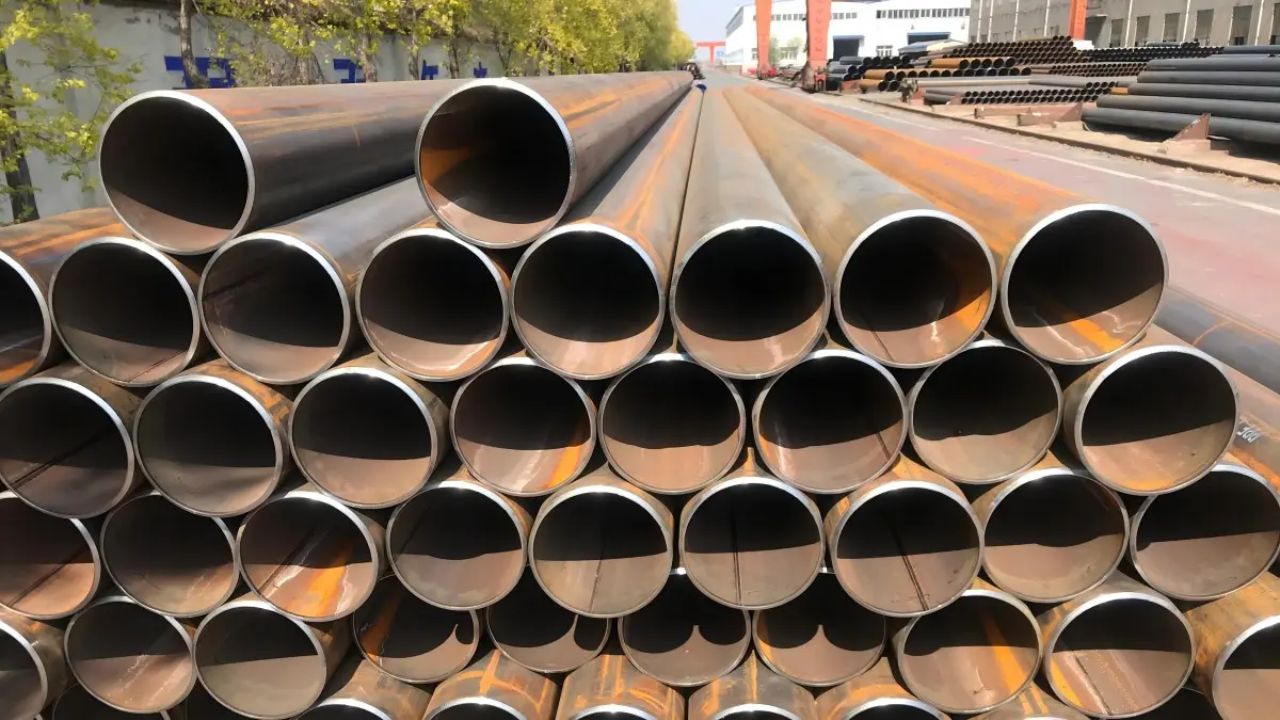In construction, mining, undersea infrastructure, and energy, steel is often placed in tough environmental situations. In these cases, how well the materials perform can affect safety and how long the project lasts. For that, AS 1163 Specification has been found to withstand extreme conditions better than many other steel standards. Because of their high strength, resistance to corrosion, and stable dimensions, they are now widely used in tough structural projects.
Designed to Stand Up to Pressure
AS/NZS 1163 steel pipes are known for having great resistance to mechanical forces. Thanks to the cold-forming and high-frequency welding process used, the pipes have a higher yield and better tensile strength. C250, C350, and C450 grades, together with their L0 counterparts, give you the chance to choose different levels of strength for different environmental uses. Whether installed for coastal work, industry, or in elevated areas, AS/NZS 1163 pipes are designed to handle vibration, winds, and long-term pressure from weight. The structure needs to be strong to guarantee low maintenance and maximum safety in the installations.
Corrosion Resistance in Coastal and Industrial Areas
Steel is more likely to deteriorate in harsh places because of moisture, salt, chemicals, and pollution. Multi-layered surface coatings in AS/NZS 1163 pipes are used to solve this problem. Depending on what is needed for the project, the pipes may be varnished, oiled, or hot-dip galvanized. They allow pipes to support their structure in both coastal regions with a lot of salt and in industrial zones where there are corrosive gases and liquids. Since these pipes can be coated in different ways, they can handle conditions that would harm other materials.
Thermal Stability Across Temperature Extremes
Changes in temperature have a big effect on how steel behaves in tough conditions. AS/NZS 1163 steel is produced so that it does not change its properties in freezing cold or hot temperatures. In places like high mountains, deserts, or the oil and gas industry, the need for thermal reliability is very high due to big temperature changes. The material’s resistance to changes in form and their reliability make them long-lasting in high-temperature applications. As a result, AS/NZS 1163 steel is suitable for use in different parts of the country, whether above or below ground.
Toughness and Impact Resistance
In areas where tremors are common, machinery is regularly used, or unloading and loading happen a lot, the energy-absorbing properties of steel are very important. The toughness of AS/NZS 1163 L0 grades is made clear by the high Charpy V-Notch impact test values they demonstrate. Even at 0°C, the pipes have high absorbed energy and can overcome stress or sudden impact without breaking. Such toughness is crucial not only for the security of the structure but also for the project’s continuous ability to work safely under changing and uncertain conditions.
Quality in Dimensions and Installation Time
There are environmental difficulties that go beyond natural causes. Poor or remote installation locations can make it harder for a project to be successful. The manufacturing of AS/NZS 1163 steel pipes is done to very precise standards for thickness, length, squareness, and straightness. Because everything fits together precisely, installing wind turbines is simple, with fewer mistakes, and it takes less time, which is crucial in poor conditions where being outside during setup could cause worries. Good measurements help keep a building straight and balanced, stopping it from failing with age.
Successful Results in Actual Real-World Use
AS/NZS 1163 steel is proven through its worldwide use in many critical infrastructure projects. In locations such as offshore platforms, on bridges and within city high-rises and tunnels, these steel pipes have stood up to tough conditions. According to case studies and long-term tests, stainless steel strengthens, repels corrosion and lasts well which has helped it become known for being a strong building material.
Infrastructure for the Future in Difficult Conditions
As infrastructure worldwide keeps improving, people are paying more attention to sustainable development and strong engineering. AS/NZS 1163 steel pipes provide a solid base for work that must last a long time in any environment. Because they are available in many coatings, types, and sizes, they can work in both existing projects and those done in challenging environments. AS/NZS 1163 steel helps give engineers, builders, and developers confidence in harsh environments by providing reliable strength and benefits that last.
Conclusion
No matter if coastal air is corrosive, if factories are nearby, if the temperature changes a lot, or if the pipes are physically affected, AS/NZS 1163 steel pipes have always stood out. Because they are strong, corrosion-resistant, and resilient, they are crucial for modern building projects that require strength and dependability. Thanks to its stability across many fields and locations, AS/NZS 1163 steel provides a solid investment in safety, productivity, and durability. When demands on infrastructure increase and climates become more uncertain, these steel pipes are ready to handle anything with absolute confidence.

